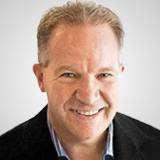Dan Sullivan, editor of the Chartist, says the drug maker is in good shape after a successful turnaround by an accomplished CEO.
Once in critical condition, Schering-Plough (NYSE: SGP) has staged a remarkable turnaround. Earlier in the decade the drug maker was plagued with a series of problems and it appeared that the recovery process would be long and difficult.
Under its previous chief executive officer Richard Kogan, it faced record government fines for quality-control problems in its manufacturing plants, an SEC investigation, alleged Medicaid fraud, and the loss of its patent for its allergy drug Claritin, which accounted for about 34% of worldwide sales in 2001.
The shares, which traded at a high of $60 in 2001, fell into the mid-teens in 2003. To rescue it from life support, Schering-Plough hired Fred Hassan to replace Kogan as CEO. He was available after orchestrating another turnaround project of Pharmacia, a drug company formed by the merger of Sweden’s Pharmacia and Michigan’s Upjohn Co. During his tenure, revenue grew from $8.9 billion to $14 billion and earnings per share tripled. He also merged with Monsanto, which included the top-selling arthritis drug, Celebrex. In 2002, he orchestrated the sale of Pharmacia to Pfizer for $60 billion.
Almost immediately, Hassan went to work fixing the problems at Schering-Plough. He fired top management, cut salaries and addressed the company’s legal and regulatory issues. In a controversial move at the time, he also lowered the annual dividend from 64 cents a share to 22 cents a share. Most analysts doubted that Hassan could overcome the rash of problems facing Schering-Plough. The consensus was that the company would be broken up or sold off to one of its rivals.
So far the critics have been proven wrong. Now, it not only looks as if Schering-Plough is on the road to a full recovery, but it looks as if it will come sooner than expected. In the recently completed first quarter, net income rose 52% to $565 million, or 36 cents a share, [from the same quarter] a year ago. Analysts were expecting earnings of only 29 cents.
In an effort to expand its drug pipeline, it also announced plans to buy Netherlands-based drug maker Organon for $14.4 billion. Organon is a leading maker of vaccines for pets and livestock, as well as a presence in women’s health products including contraceptives. Most promising is that it has five drugs in advanced stages of development.
Other signs that Hassan’s turnaround strategy is working: ten consecutive quarters of double-digit revenue growth and a share price that has almost doubled over the past 12 months. (The stock closed just below $33 Tuesday—Editor.)










